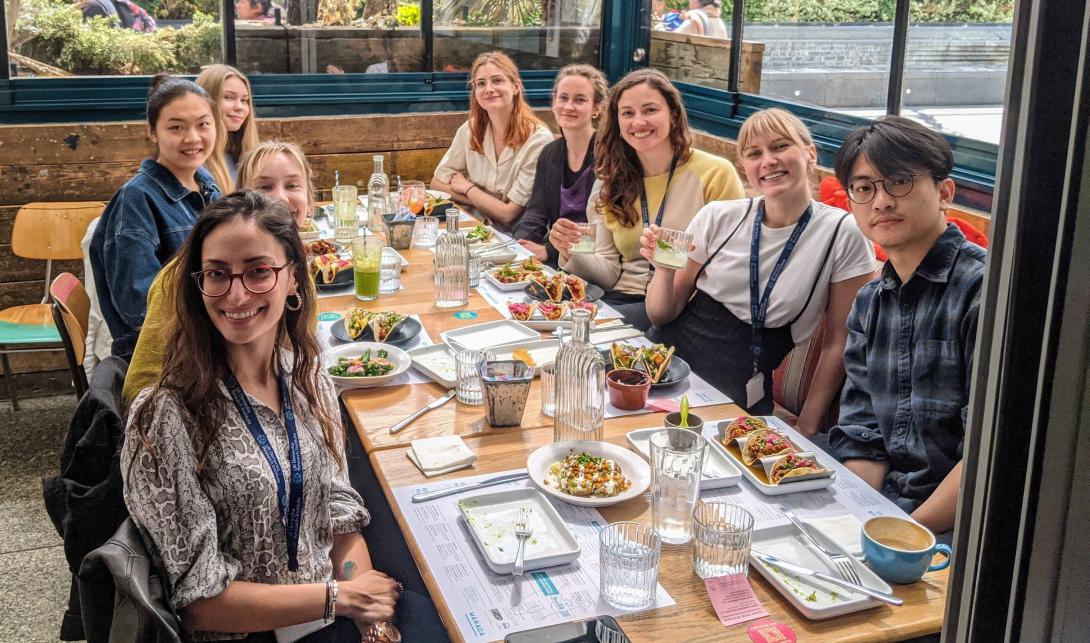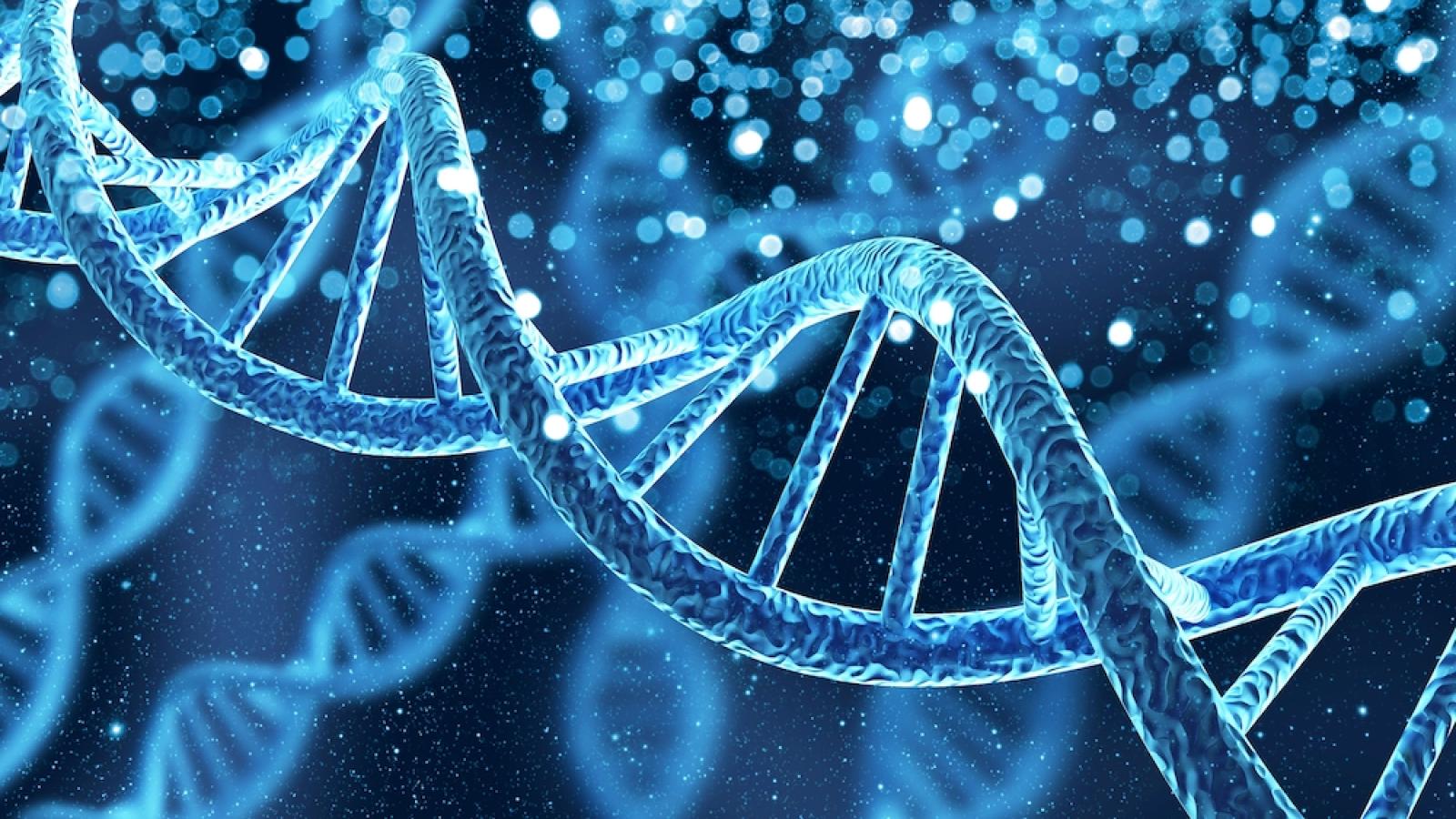Epigenetics is the study of how biological mechanisms regulate gene expression within cells. This regulatory process can become maladaptive, making cells more vulnerable to protein aggregates that accumulate in neurodegenerative diseases like Alzheimer’s and Parkinson’s.
Dr Sarah Marzi, current Emerging Leader at the UK DRI at Imperial, will soon join the UK DRI at King’s as a new Group Leader. She will apply her background in epigenetics to tackle amyotrophic lateral sclerosis (ALS), where there are unique challenges and huge potential for impact. Here, Dr Marzi outlines the focus of her work, the collaborations she hopes to make, and why she’s excited about moving into the ALS field.
What will your new research programme focus on? How does it differ from your current programme?
I’m an epigeneticist, which means I’m interested in gene regulation, how genes are expressed, and which gene is expressed in which context. For example, in different cell types or in response to different triggers. Epigenetics is required for normal functioning, such as when cells develop and differentiate. But what we believe is that these things can become maladaptive at times, both through the influence of gene mutations, but also potentially environmental risk factors that are associated with diseases.
These effects might lead our cells to behave in ways that are harmful or make them more vulnerable to things like protein aggregates. I’m interested in this in the context of neurodegenerative diseases and understanding how neurons become vulnerable to such diseases. I’m also interested in how the surrounding non-neuronal cells, called glia, interact with those neurons, particularly with a focus on neuroinflammation and the neuroimmune system. That's what I've been doing in Alzheimer's and Parkinson's disease so far, and my aim for my work at the UK DRI at King’s is to take that into ALS as well.
Why did you choose to join the UK DRI at King’s?
I think looking at epigenetic mechanisms in ALS is a huge opportunity, and nobody has comprehensively addressed it yet. The genetics of ALS are quite unique: while the disease can sometimes be caused by a mutation in a single gene, more commonly several genetic variants act together. These can have stronger or weaker effects on disease risk and are thought to interact with environmental risk factors. Epigenetic regulation in disease-relevant cell types can help us understand effects of genetic variants and the contexts in which they act, as well as mechanisms underlying incomplete penetrance (when one person with a mutation gets the disease but another with the same mutation does not) and environmental contributions to disease. I'm really excited to tackle that challenge, and it's quite a unique niche, so I think we can have a lot of impact with this work.
I am also very excited about my colleagues at the UK DRI at King’s and their research. I think it will be very complementary to what I'm doing. There are basic RNA biologists, as well as those working in bioengineering, gene editing and gene therapy. I think it's close enough but sufficiently different from what I do that we can do really interesting projects together, and I can learn a lot about the more fine-grained mechanistic functional biology. Traditionally in my work, I look at the whole genome and the big picture, and try to understand what goes wrong in terms of gene regulation. Linking that to really detailed mechanisms has the potential to make a big impact.

What are you particularly excited about in your field at the moment?
It's been a steep learning curve, being new to the field of ALS epigenetics. There is so much exciting stuff going on at so many different levels. In ALS there are lots of high effect variants, but they're not fully penetrant. Meaning that one person who has a certain variant may get the disease, whereas another who has the same variant may not. Understanding why that is the case is really important and could be due to differences in epigenetic mechanisms.
What’s also really fantastic in ALS is that for such a rare disease, there has been a really impressive effort to study the underlying genetics. For example, there is a huge study undertaking whole genome sequencing in people with and without ALS to detect rarer gene mutations, which is co-led by researchers from King’s. Generating all that data and linking it up with the kind of studies I do will be really powerful. Having that top level research right there within my institution is something I’m very excited about.
Finally, what’s the most important thing you have learned from your academic career so far?
I think what's important, and sometimes hard to remember, under all the pressures of publishing and getting exciting results is that at the end of the day, science is about finding out the truth. And then, especially in biomedicine, coming up with useful strategies of improving medical conditions. I think in that context, failure is important as a learning process. Negative results, for example, I think are really important, and should be reported and interpreted and should update the view we have on the field and the current understanding.
I think it is also important to celebrate the positives. So when you do have an exciting result, an accepted paper, a student finishing their PhD, or when you're about to start a very exciting new job at a new Centre, these are all occasions that need to be celebrated.
Sarah will take up her new role in September 2023.
Links
· Dr Marzi’s Emerging Leader profile
· Q&A with Group Leader Dr Andrea Serio
· Feature with Centre Director Prof Jernej Ule
Article published: 28 July 2023
Banner image: Shutterstock/billion photos
